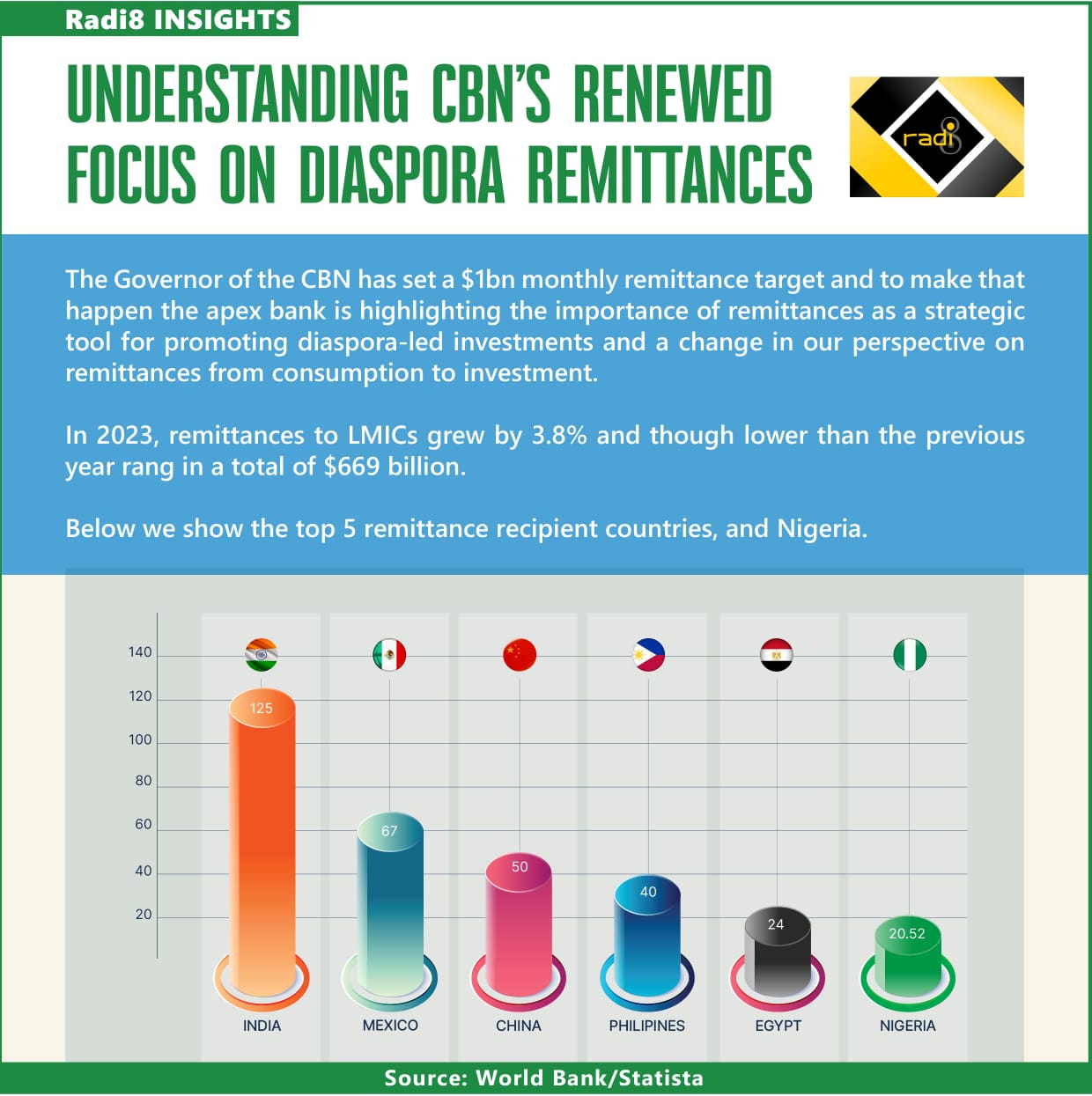...To get all news updates, Join our WhatsApp Group (Click Here)
Also Join our WhatsApp Channel (Click Here)
My friend, Paul, is Jamaican. He has a strong Jamaican twang that sometimes leaves me wondering what he is saying.
Paul and I met at our local pub in London and bonded over our mutual love for crossword puzzles. When he was about 12, his mother left Jamaica for the US and Paul’s life changed as he became a “barrel baby”.
The term “barrel children” was coined by Dr. Claudette Crawford-Brown, a lecturer at the University of the West Indies and it refers to children who receive food and clothes and money from parents who have migrated abroad in search of greener pastures.
Psychologists have spoken of the negative effect this can have on “barrel children” who may harbour feelings of abandonment but economists focus on the impact on the Gross Domestic Product (GDP) and wider economy because diaspora remittances from economic migrants are a huge source of economic empowerment for the people and country they leave behind.
In Nigeria we know of children, parents, spouses and sundry family members who make weekly visits to pick up funds sent by loved ones via Western Union or Moneygram.
Diaspora remittances were in focus in the last week of October in Washington as Yemi Cardoso, Governor of the Central Bank of Nigeria made a series of disclosures and announcements on the sidelines of the IMF/World Bank meetings.According to TheCable, Yemi Cardoso announced that the CBN has set a remittance inflow target of $1bn a month.
A few things are worthy of consideration regarding the announcement and disclosure. The volume of remittances has been on the rise since Yemi Cardoso took over at the CBN and implemented a few initiatives. One of which was the granting of approval in principle (AIP) to 14 new and eligible international money transfer operators (IMTOs) to trade on the official foreign exchange (FX) window through the implementation of a willing buyer-willing seller model. This enabled timely access to naira liquidity for IMTOs thereby enhancing liquidity in Nigeria’s FX market.
diaspora remittance inflowIt has had a positive effect because in July the CBN reported that the country had recorded an all-time high of $553m. During the IMF/World Bank meetings the CBN governor announced that remittance inflows surged past $600m.
According to Cardoso, “When I was in Washington for the spring meetings, I called the different IMTOs and…we engaged with them extensively and understood what the problems were. I would say that when we started, the volumes that were going through the remittances were in the region of maybe about $200 million and as at the end of last month, we were almost $600 million.”
It is on the strength of this growth that Yemi Cardoso has set the seemingly high $1bn monthly diaspora remittance target. How realistic is that target and what will it mean for the Nigerian economy?
It is realistic because diaspora remittances have averaged $20bn annually over the past decade and as I noted in an earlier intervention, when the CBN is in the spotlight, discussions almost always resolve to the foreign exchange rate.
The managed float of the naira coupled with other measures introduced by the CBN are having some positive impact seen in the comparative stability of the naira relative to the green back, the checkmating of round tripping, removal of speculative trading and arbitrage and positive contraction in the gulf between the official and parallel market rates.
The CBN governor believes that with the naira competitive Nigerians in the diaspora are now eager and should be encouraged to invest. “Our currency has now become extremely competitive and cheap. So they see the opportunity of taking positions in assets and businesses back home.”
What the CBN governor is alluding to here is that since the dollar can now get more naira for those abroad, the time may be right to set up that water-making factory or agro-product processing plant because aside from oil and remittances and bonds, the country needs return of productive capacity to help buoy the value of the naira.
This case is being made with gusto by the CBN governor and his lieutenants as well as bankers and financial sector stakeholders who have joined the train.
The CBN governor was guest at an event on October 22 on the sidelines of the IMF and World Bank annual meetings in Washington DC. Titled ““Strengthening Ties with Nigerians Abroad” A Conversation with Yemi Cardoso, Governor, Central Bank of Nigeria” it afforded him an opportunity to share ongoing reforms at the apex bank and contextualize the need to change the perspective on remittances from a focus on consumption to investment.
That same message resonated at a forum which held a day earlier in Houston, Texas under the theme “Optimizing Remittances to Nigeria: A Vision for the Future”. The event “brought together members of the Nigerian diaspora, business leaders, investors, and top executives from Nigerian banks to explore strategic pathways for enhancing remittance flows, a vital component of Nigeria’s economic stability and growth.”
To boost remittance flows, enhance diaspora BVN enrolment and facilitate banking transactions in Nigeria for those in the diaspora, the Nigeria Inter-Bank Settlement System (NIBSS) took advantage of the forum to introduce the Non-Resident Bank Verification Number (NRBVN), a new digital platform which simplifies Know Your Customer (KYC) verification for Nigerians in the diaspora and foreign investors.
The message was simple; remittances can be a strategic tool for promoting diaspora-led investments if we pay close attention to the pivotal role the Nigerian diaspora already plays in national development and direct a shift in focus. As Philip Ikeazor, Deputy Governor, Financial System Stability, CBN told his audience “We are looking at remittances going beyond remittances for consumption, but remittances for investment.”
But will $1bn monthly diaspora inflows make much of an impact? The answer is easy. Increased remittance inflows will provide more foreign exchange liquidity which will have a positive impact not just on the dollar supply side but on the overall economy. So, the key is to move from $1bn monthly to more.
19.1%, of their GDP down from 21.57%And to explain this I will return to my Jamaican friend and his country. Jamaica’s foreign exchange earnings come primarily from Tourism, Trade and Remittances. In 2023, remittances accounted for recorded in 2022
5.65% of GDP indicating an increase from 4.26%Nigeria on the other hand earns its foreign exchange mostly from oil. Then we have receipts from the non-oil sector from trade in goods and services, agro products and solid minerals. Oil earnings have dwindled in recent times thanks to a cocktail of issues that do not need elaboration. In 2023, diaspora remittance inflows accounted for recorded in the preceding year.
My focus on Jamaica which has a population of about 3m people may look like the proverbial apples to oranges comparison so let us look at diaspora remittances from the perspective of bigger low- and middle-income countries (LMICs).
World Bank According to 2023 statistics from the “remittances to low-and middle-income countries (LMICs) grew an estimated 3.8% in 2023,” albeit lower than the previous year’s with a total value of “$669 billion.”
The same World Bank report also lists the top 5 remittance recipient countries in 2023 as India ($125 billion), Mexico ($67 billion), China ($50 billion), the Philippines ($40 billion), and Egypt ($24 billion). Nigeria came in at $20.52bn for 2023.
The fact that the announcement was made in America in Houston which boasts the largest Nigerian population in the US is significant because America remains the largest source of diaspora remittances and to put it in perspective; in 2022, of the 4.8 million Indian Americans in America, 3.1 million were immigrants meaning they had ties at home conversely Nigeria had a population of about 712,000 with about 392,811 of those born in Nigeria and with ties to home.
The point of these figures is to show the potential while underlining the fact that diaspora remittances can impact the economy positively when the right environment is created for those who have japa’d to cast their financial gaze home.
The second point is that while Cardoso has set a $1bn remittance inflow target per month there is the feeling that it is a modest target and that the figure would be exceeded if ongoing engagements continue and the measures put in place are sustained.
Migration and Development Brief 39To conclude let us look to a quote by DulipRatha, author of the report to help us understand why the renewed focus on remittances is a big deal.
“Remittances are one of the few sources of private external finance that are expected to continue to grow in the coming decade. They must be leveraged for private capital mobilization to support development finance, especially via diaspora bonds. Remittance flows to developing countries have surpassed the sum of foreign direct investment and official development assistance in recent years, and the gap is increasing.”
***Toni Kan is a PR expert and financial analyst.
You can get every of our news as soon as they drop on WhatsApp ...To get all news updates, Join our WhatsApp Group (Click Here)
Also Join our WhatsApp Channel (Click Here)

















